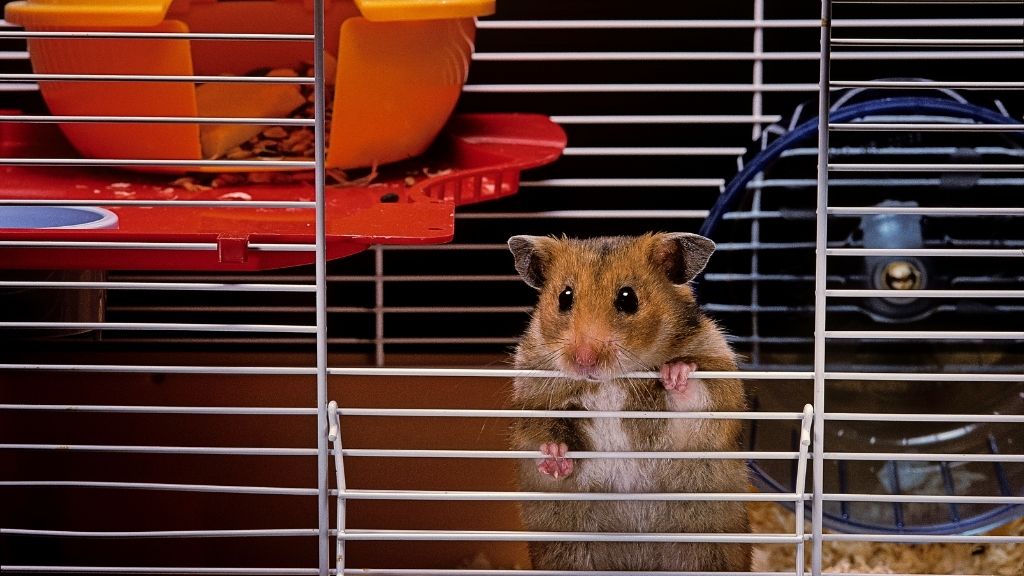Pet hamsters sparked a coronavirus outbreak in Hong Kong
The hamsters were initially imported from the Netherlands.

Get the world’s most fascinating discoveries delivered straight to your inbox.
You are now subscribed
Your newsletter sign-up was successful
Want to add more newsletters?

Delivered Daily
Daily Newsletter
Sign up for the latest discoveries, groundbreaking research and fascinating breakthroughs that impact you and the wider world direct to your inbox.

Once a week
Life's Little Mysteries
Feed your curiosity with an exclusive mystery every week, solved with science and delivered direct to your inbox before it's seen anywhere else.

Once a week
How It Works
Sign up to our free science & technology newsletter for your weekly fix of fascinating articles, quick quizzes, amazing images, and more

Delivered daily
Space.com Newsletter
Breaking space news, the latest updates on rocket launches, skywatching events and more!

Once a month
Watch This Space
Sign up to our monthly entertainment newsletter to keep up with all our coverage of the latest sci-fi and space movies, tv shows, games and books.

Once a week
Night Sky This Week
Discover this week's must-see night sky events, moon phases, and stunning astrophotos. Sign up for our skywatching newsletter and explore the universe with us!
Join the club
Get full access to premium articles, exclusive features and a growing list of member rewards.
Imported pet hamsters carried the delta variant of the novel coronavirus into Hong Kong, sparking a local outbreak, a new study suggests.
The research, posted Jan. 28 to the database Preprints with The Lancet, has not yet been peer-reviewed, but it provides the first evidence of hamster-to-human transmission of SARS-CoV-2, the virus that causes COVID-19. Hamsters can be infected with the coronavirus in laboratory settings and are often used in research, but prior to the Hong Kong outbreak, there wasn't evidence of the rodents passing the virus to humans, Nature reported.
So far, the outbreak has affected about 50 people and has prompted government officials to cull thousands of pet hamsters in the city, according to Nature.
Related: 20 of the worst epidemics and pandemics in history
The new study initially began after a pet shop worker in Hong Kong's Causeway Bay district tested positive for COVID-19 in January, The Washington Post reported last month. The 23-year-old woman was infected with the delta variant, health officials determined, which was odd because the variant hadn't been spotted in the city since October 2021, according to Nature.
The woman hadn't been in contact with any other individuals known to be infected, but she had been working in the pet shop, called Little Boss, which sells various animals, including hamsters, rabbits, guinea pigs and chinchillas, the study authors noted in their report.
Cases of mink-to-human coronavirus transmission took place on mink farms early in the pandemic, Live Science previously reported. Suspecting that this might be another potential case of animal-to-human transmission, Hong Kong health officials began screening animals at the pet shop for evidence of coronavirus infection. They also screened animals at the wholesale market that supplies the pet shop's animals.
Get the world’s most fascinating discoveries delivered straight to your inbox.
The officials didn't find evidence of infection among any of the rabbits, guinea pigs, chinchillas, mice or dwarf hamsters that they screened. However, the team found that eight out of 16 Syrian hamsters tested at the pet shop showed evidence of SARS-CoV-2 infection through a positive PCR test and/or the presence of antibodies in their blood. The same was true of seven out of 12 Syrian hamsters tested at the warehouse. None of the rodents showed overt signs of illness, they reported.
As this investigation was unfolding, a woman who had recently visited the pet shop tested positive for COVID-19, and soon, her spouse and children did as well. The investigators took samples of coronavirus from the woman, her spouse and the pet shop worker and analyzed the genome of the virus from each; they also analyzed the genomic sequences of viral samples collected from 12 of the 15 infected hamsters. All these samples turned out to be a version of the delta variant never-before-seen in Hong Kong, although the sequences were not completely identical to each other, according to Nature.
Based on these subtle genetic differences, the team determined that some of the hamsters likely caught the coronavirus in November 2021, before being imported to Hong Kong from the Netherlands. They concluded this, in part, because the viral sequences most closely resembled those of samples collected from people in European countries and uploaded to a public database, the authors wrote in their report.
Upon reaching Hong Kong, the virus then spread to more hamsters, picking up a few mutations along the way, before infecting the pet shop owner and the shop customer on separate occasions, the researchers suspect. The customer then passed the virus on to her spouse, in a case of human-to-human transmission, the team concluded.
Compared with the delta variant samples from Europe, the viral sequences found in Hong Kong residents and hamsters carried four unique mutations, the authors reported. Two of these mutations are in genes that code for the spike protein, which the virus uses to infect cells, and may potentially help the virus escape some antibodies and enter cells more efficiently. The team also found a third spike protein mutation whose effects "require further investigation," they wrote.
Despite the study author's conclusions, though, there's still a possibility that the hamsters first caught SARS-CoV-2 after arriving in Hong Kong, Arinjay Banerjee, a virologist at the University of Saskatchewan in Saskatoon, Canada, told Nature. "There are so many people handling hamsters during the process of them being transported," he said. On their way to Hong Kong, one batch of hamsters stopped in Doha, Qatar and were moved to a different plane; the second batch stopped in Bangkok, Thailand but remained on the same plane, the study authors noted.
That said, Marion Koopmans, a virologist at the Erasmus University Medical Center, told Nature that, like the authors, she's convinced that the hamsters were infected prior to importation.
In either case, the study suggests that hamsters can and do pass the coronavirus to people, but "to be fair to the hamsters," people are still much more likely to catch the virus from each other, senior author Leo Poon, a virologist at the University of Hong Kong, told Nature.
Read more about the hamster-driven outbreak in Nature and The Washington Post.
Originally published on Live Science.

Nicoletta Lanese is the health channel editor at Live Science and was previously a news editor and staff writer at the site. She holds a graduate certificate in science communication from UC Santa Cruz and degrees in neuroscience and dance from the University of Florida. Her work has appeared in The Scientist, Science News, the Mercury News, Mongabay and Stanford Medicine Magazine, among other outlets. Based in NYC, she also remains heavily involved in dance and performs in local choreographers' work.
 Live Science Plus
Live Science Plus










